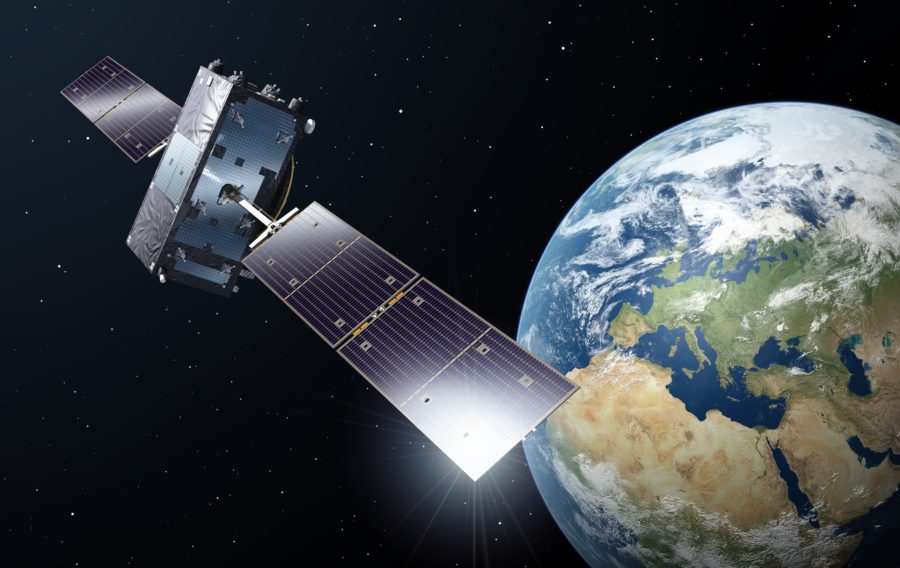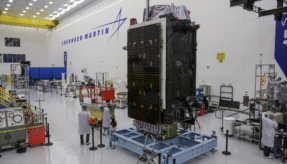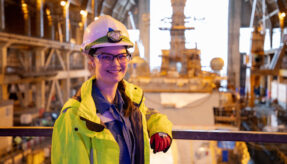
As much of the country braces for Brexit, the UK government has unveiled a £92 million investment package to develop a state-of-the-art alternative to the European Union’s Galileo satellite system.
The investment package, which comes courtesy of the £3 billion Brexit readiness fund announced last year, is to be rolled out over the coming months.
Satellite navigation systems like GPS have a myriad military and commercial applications, from shepherding aircraft, ships and emergency services to their destinations to guiding millions of motorists along the UK road network. In fact, a recent government study placed the approximate cost of sustained navigational disruption at an astonishing £1 billion per day.
While the government hopes the UK will remain a key partner to the Galileo programme, and is negotiating with the European Commission to that end, contingencies must be made. If British industry isn’t able to collaborate on equal footing, and the UK is unable to access the security-related data needed to rely entirely on Galileo for military use (such as missile guidance), an alternative must be found.
Consequently, the UK Space Agency is leading preliminary work to investigate the possibility of a British Global Navigation Satellite System – one which would fully meet the government’s security requirements and support the nation’s burgeoning space and cryptography sectors. The investment package will go towards developing specific technical proposals with the Ministry of Defence playing a support role.
The 18-month engineering, design and development project will also deliver a detailed technical assessment and schedule for a UK global positioning system. This would accommodate both civilian and encrypted signals and have direct compatibility with its counterpart in the US.
UK industry has proven instrumental to the development of Galileo’s cutting-edge technology and encryption, and this experience will be essential if the UK is to develop an alternative, with a number of multimillion-pound contracts available to British space companies.
“Britain is a world leader in the space industry and satellites,” said Business Secretary Greg Clark. “We are investing in an alternative option to Galileo to ensure our future security needs are met using the UK’s world-leading space sector.
“Our position on Galileo has been consistent and clear. We have repeatedly highlighted the specialist expertise we bring to the project and the risks in time delays and cost increases that the European Commission is taking by excluding UK industry.
“Britain has the skills, expertise and commitment to create our own sovereign satellite system and I am determined that we take full advantage of the opportunities this brings, backed by our modern Industrial Strategy.”
Defence Secretary Gavin Williamson added: “The danger space poses as a new front for warfare is one of my personal priorities, and it is absolutely right that we waste no time in going it alone if we need an independent satellite system to combat those emerging threats.
“This alternative system and the UK’s very first Defence Space Strategy which I will launch later this year will be a further boost to military skills, our innovative businesses and our genuinely world-leading role which has seen us make such a key contribution to Galileo.”
Dr Graham Turnock, CEO of the UK Space Agency, concluded: “We remain confident in the strength of our space sector and look forward to working in partnership with them on the exciting prospect of a national satellite navigation system.”
Even if the decision is taken not to create a UK independent satellite system and the UK remains a full member of Galileo post-Brexit, this preliminary work would still support UK jobs and expertise in areas including spacecraft and antenna design, satellite control systems, cryptography and cyber security. Crucially, it will also support the UK’s fast-growing space sector.
The British space industry is going from strength to strength. Recently, the European Space Agency’s revolutionary British-built wind measuring spacecraft Aeolus was launched. The spacecraft was built by Airbus Defence and Space in Stevenage, while other British businesses provided critical elements to the mission, including camera equipment, software and propulsion systems.
Meanwhile, at the Farnborough International Airshow in July the government committed £31.5 million to support the development of a spaceport in Sutherland in the north of Scotland – potentially the first of its kind in Europe. The sky is the limit for the UK space and satellite industry, it seems.
If you would like to join our community and read more articles like this then please click here.







